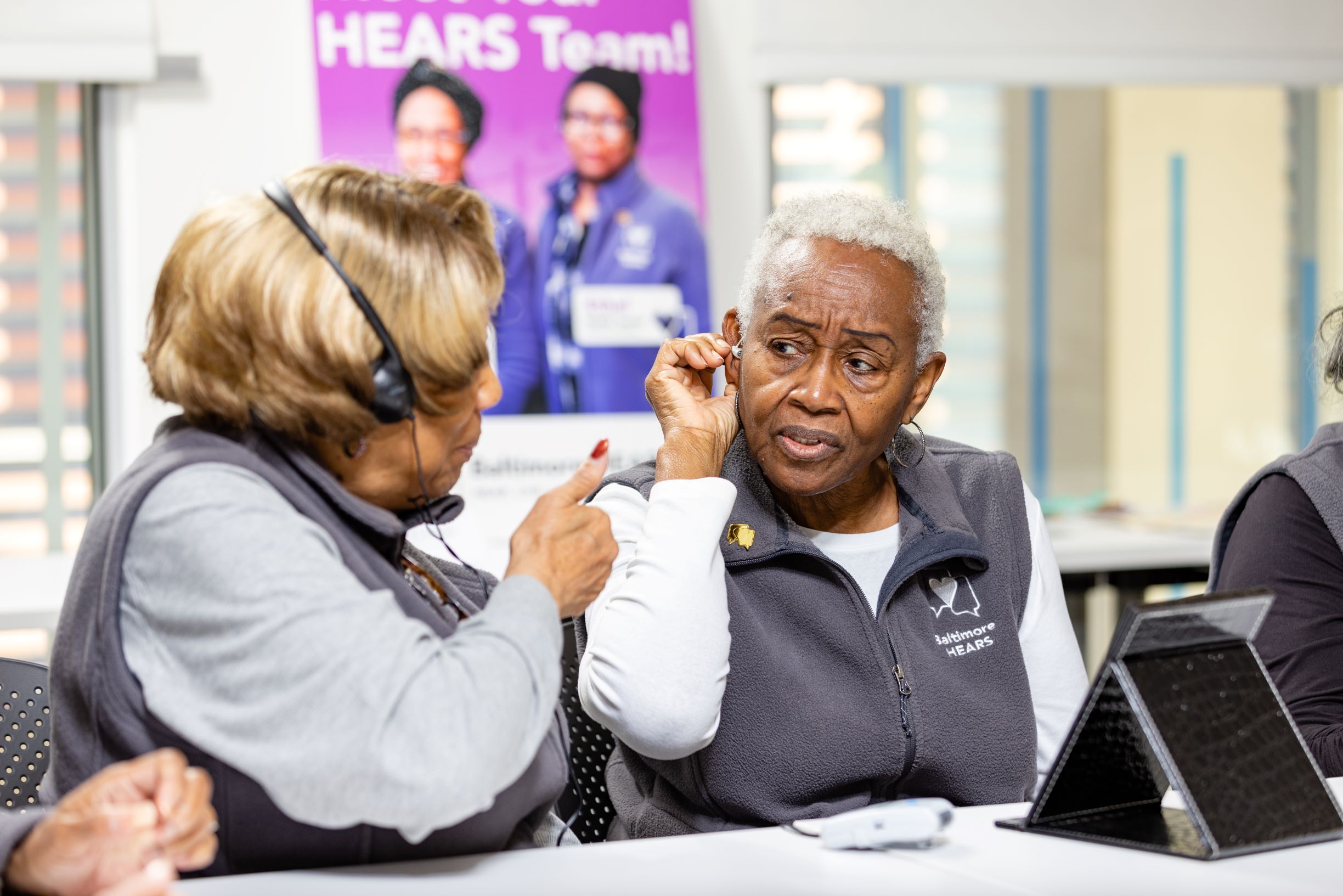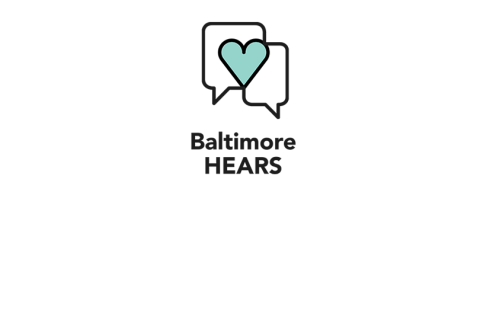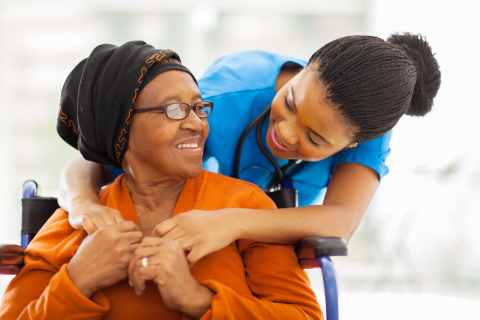All older adults deserve access to the tools they need for healthy aging.
Yet there are massive economic and racial disparities in access to and use of hearing care that this model cannot meet. Less than 20% of adults with hearing loss use a hearing aid, and rates are even lower among low-income adults, often due to the high cost of devices, limited insurance coverage, and inadequate access to hearing care professionals.
In-person, one-to-one interaction between patient and clinician remains the dominant clinical model of hearing care. The Cochlear Center is developing, testing, and disseminating different models of care so that older people have access to care at all levels of accessibility and affordability.
The Cochlear Center leads two large studies testing different models of care:
HEARS - Hearing health Equity through Accessible Research and Solutions
The HEARS program is a first-in-kind, affordable, accessible hearing care intervention delivered by community health workers who connect older adults in their community with education on age-related hearing loss, basic principles of aural rehabilitation, and over-the-counter hearing technology. The HEARS program works: the randomized clinical trial conducted in Baltimore found that participants’ hearing and communication improved significantly – all with a 2-hour program delivered entirely by community health workers using over-the-counter, low-cost hearing technology. Further trials of the HEARS program are planned at three sites across Maryland, and lead investigator Carrie Nieman is seeking collaborators and funding to grow the program globally.
Learn More About HEARS
ENHANCE Model - Engaging Healthcare to Address Communication Environments Program
Communication is essential for providing patient-centered care. Strong patient-provider communication is associated with better healthcare outcomes. The core principle of ENHANCE is that patient-provider communication is required from the provider – it should not fall on the patient. ENHANCE delivers a simple, scalable program, compatible with healthcare workflow, that identifies hearing loss in clinical/in-patient settings and provides patients with tools like amplifiers and communication strategies so they can communicate more clearly with their care providers.



